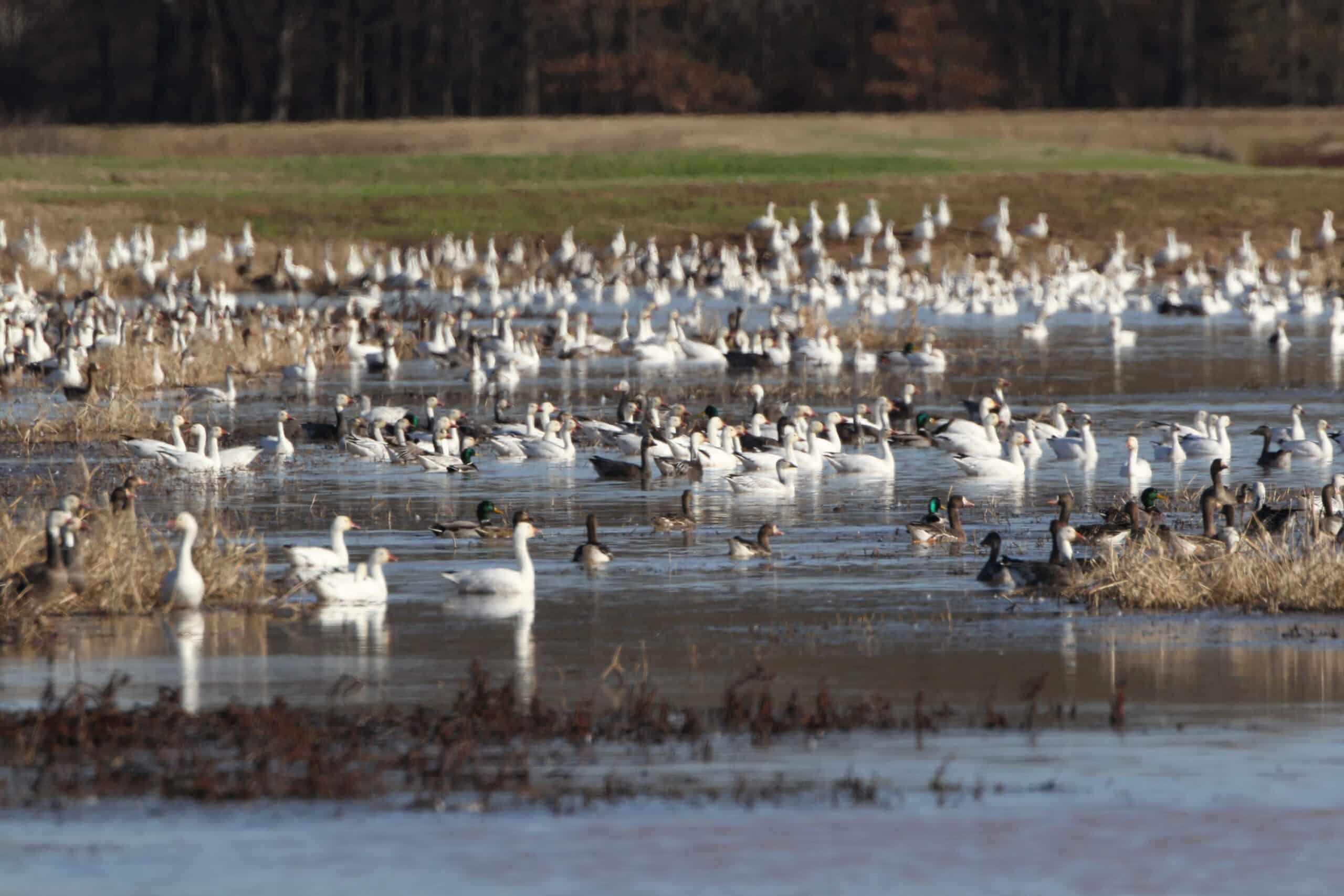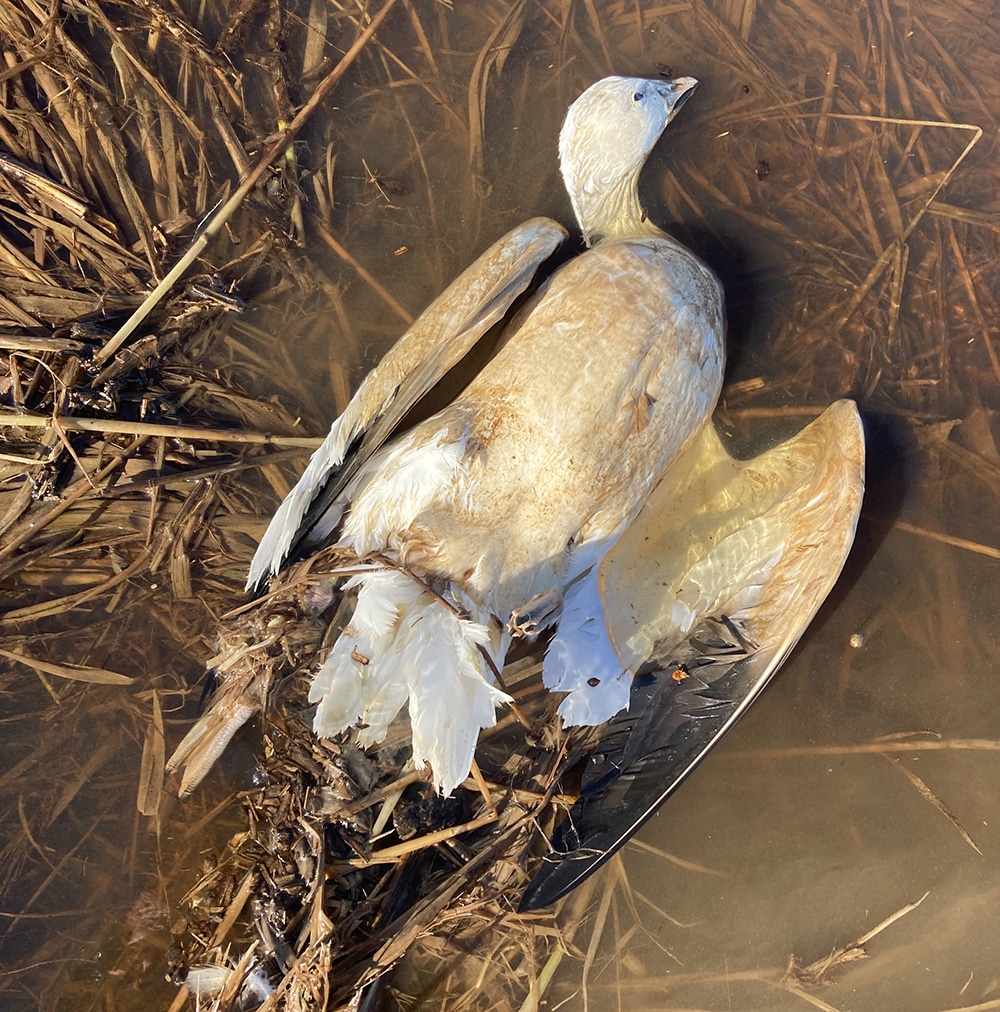New cases of avian influenza confirmed in Arkansas
ON 12-13-2023

LITTLE ROCK — Biologists conducting aerial surveys to generate waterfowl population estimates last week located a few small groups of dead snow geese and Ross’s geese in Arkansas, Craighead and Lonoke counties that were later collected and tested positive for Highly Pathogenic Avian Influenza. Additional suspected cases have been found in Prairie, Pulaski, Faulkner, Clay and Poinsett counties. While sightings are not as prevalent as last year’s outbreak, the continued presence of the disease on the landscape does create a need to update hunters and anyone who has domestic birds or poultry livestock.
The risk of humans contracting the disease remains low, but hunters can help further minimize that risk by following a few simple precautions. As a general precaution, hunters should use good hygiene practices when handling, cleaning and preparing harvested waterfowl.
Safety Guidelines for Hunters
- Harvest only waterfowl that act and look healthy. Do not handle or eat sick animals.
- Wear disposable gloves when handling and cleaning game and field dress outdoors or in a well-ventilated area. Wash hands thoroughly with soap and water afterward.
- Dispose of unwanted parts in a manner that prevents scavenging by domestic animals and wildlife.
- Thoroughly cook all game to an internal temperature of 165 degrees Fahrenheit before eating it.
- Do not feed pets or domestic animals uncooked portions of waterfowl.

The more concerning risk associated with HPAI is its potential for spillover to domestic poultry. Commercial poultry producers may want to implement biosecurity measures available at www.agriculture.arkansas.gov/livestock-poultry/poultry-health-npip-programs/biosecurity-standards-for-poultry-farms, but many Arkansans in rural areas have small flocks of domestic ducks and chickens as pets and a source for fresh free-range eggs.
Domestic birds should be completely isolated from wild birds or their parts. After handling waterfowl, hunters should change or clean clothing, shoes and other equipment before coming into contact with poultry, including commercial production facilities and backyard flocks.
Hunters and wildlife watchers who observe concentrations of sick or dead birds should visit www.agfc.com/education/avian-influenza with information about the species, number of birds affected and location.
More information on avian influenza is available at USDA APHIS’s website.
###
CUTLINES:
LIVE BIRDS
Snow geese and Ross’s geese seem to make up the majority of Arkansas’s Avian Influenza cases with a few white-fronted geese being reported as well.
DEAD SNOW GOOSE
Hunters are asked to report any concentrations of dead or sick waterfowl at www.agfc.com/education/avian-influenza.
Recent News

Arkansas Wildlife Weekly Fishing Report
Jul. 10, 2025

Lonoke aquaculturist named to AGFC
Jul. 10, 2025
Subscribe to Our Weekly Newsletter E-mails
Don’t miss another issue. Sign up now to receive the AGFC Wildlife Weekly Newsletter in your mailbox every Wednesday afternoon (Waterfowl Reports are published weekly during waterfowl season and periodically outside the season). Fishing Reports arrive on Thursdays. Fill in the following fields and hit submit. Thanks, and welcome!
